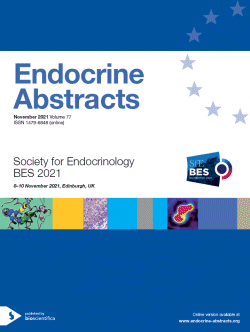Searchable abstracts of presentations at key conferences in endocrinology

Society for Endocrinology BES 2021
Edinburgh,
United Kingdom
08 Nov 2021 - 10 Nov 2021

Join us in Edinburgh for the flagship event of the Society for Endocrinology



